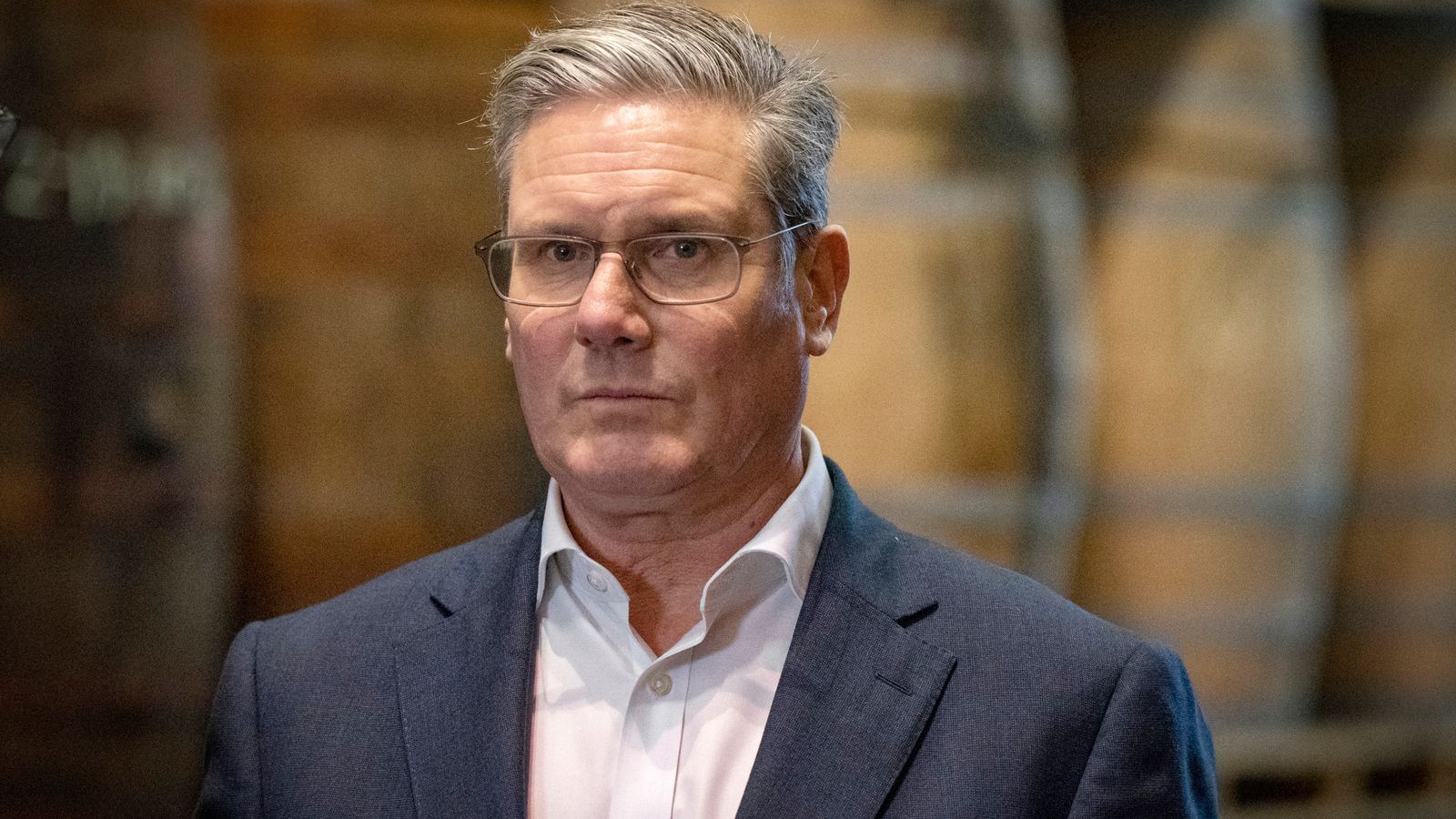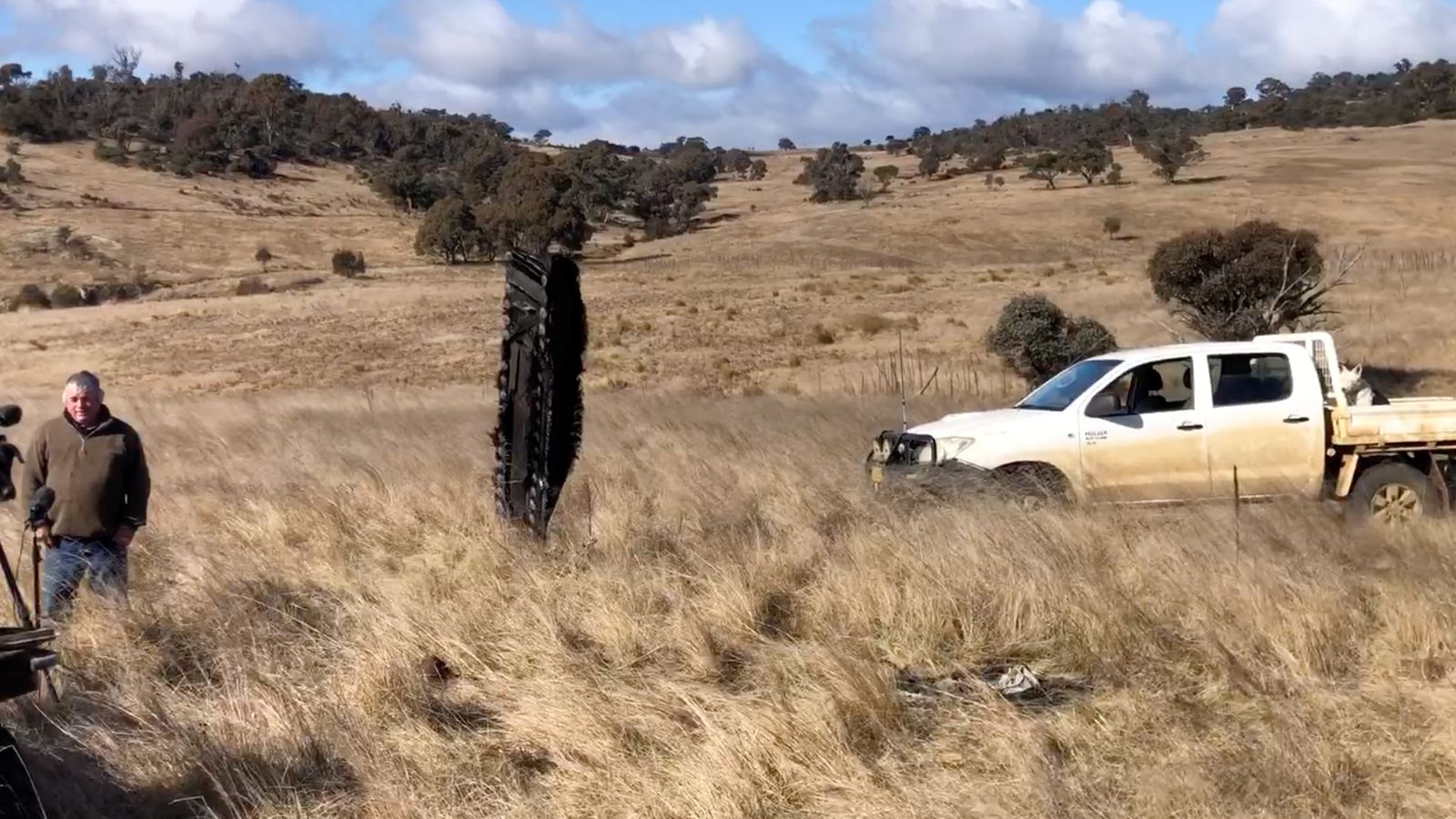Sir Keir Starmer’s leadership has been tested after more than 50 of his MPs and eight shadow ministers rebelled over Labour’s refusal to back a ceasefire in Gaza.
In total, 56 Labour MPs defied Sir Keir’s orders and voted in favour of an SNP amendment that called explicitly for a ceasefire in Gaza – despite warnings that it was designed to cause “division”.
They were joined by eight members of the frontbench who, in breaking collective responsibility, were forced to resign from their posts.
But why has the issue of a ceasefire caused so much division? And why does the Labour leader not support one? Sky News explains.
What is a ceasefire?
A ceasefire – which has been called for by a number of figures and institutions from the Pope and French president Emmanuel Macron to the UN General Assembly – would require Israel and Hamas to come to a formal agreement to stop fighting and avoid a resumption of hostilities.
Depending on negotiations it could involve other factors as well, such as the withdrawal of Israeli troops from Gaza or a pledge from Hamas to release all hostages.
Labour insist rebellion was no bigger than expected – but loss of Jess Phillips is a big blow for Keir Starmer
Israel-Hamas war: Labour’s Imran Hussain resigns as shadow minister over Starmer’s position on Gaza ceasefire
Sir Keir Starmer asked to resign by two Labour council leaders over Gaza ceasefire stance
A ceasefire would also likely cover the entire Gaza Strip and not just a particular area.
Politics latest: Cleverly briefly forgets where he works and makes digs at Braverman
How is a ceasefire different to a humanitarian pause?
By contrast, calls for a humanitarian pause assume only a temporary stop to the fighting to allow humanitarian aid into Gaza and possibly safe passage from the area for those trapped.
The key difference is that a pause would allow Israel to continue its combat against Hamas after a brief respite for humanitarian purposes.
Why does Sir Keir not support a ceasefire?
Sir Keir has outlined his position – shared by the UK government and Joe Biden’s administration in the US – in a number of speeches in recent weeks.
Speaking at a Chatham House event late last month, he said he did not back a ceasefire because Hamas did not want one and it would only “embolden” the group.
Please use Chrome browser for a more accessible video player
Indeed, Dr Ghazi Hamad, a senior Hamas official, told Sky News last month the fight against Israel will continue “with all means” until an independent Palestinian state is established.
“We can defeat Israel, we can target Israel, we have targeted Israel many times,” Dr Ghazi Hamad said.
In his speech, Sir Keir said a ceasefire “always freezes any conflict in the state where it currently lies”, adding: “That would leave Hamas with the infrastructure and the capabilities to carry out the sort of attack we saw on 7 October.
“Attacks that are still ongoing,” he went on. “Hostages who should be released still held. Hamas would be emboldened and start preparing for future violence immediately.”
He said the “scale and brutality” of the attack was an “immutable fact that must drive our response to these events”.
He described a humanitarian pause as the “only credible approach”, which would see “the urgent alleviation of Palestinian suffering”.
‘Not a protest party’
Internally, the Labour leadership has been making its own considerations as to how it responds to the crisis.
Sir Keir is keen to project an image of the party as one that is ready for government – which means distancing itself from its recent past of Jeremy Corbyn and the problem of antisemitism.
That has translated into Sir Keir showing strong support for Israel and its right to defend itself, although the Labour leader has begun to use more critical language about the country’s conduct as the death toll in Gaza has risen.
Shadow defence secretary John Healey told Sky News that Labour was “not a protest party” and that while it as a matter of “regret” that eight members of the frontbench quit, “Keir was right to be firm”.
Please use Chrome browser for a more accessible video player
“We’re acting as we would in government and that’s the indication, if you like, that Labour has changed under Keir Starmer,” he said.
Shadow education secretary Bridget Phillipson also warned: “‘This is about what’s right for the people of Israel and Gaza. The primary focus of this is not the Labour Party.”
The leadership’s position on Gaza is reminiscent of how it approached industrial action by workers in pay disputes – a similarly important issue to its members where the natural position for the party would have been to show support.
However, the Labour leader was also clear then that ministers would not be able to attend picket lines in government because they would instead be sitting around the negotiating table with trade unions.
Sir Keir himself said after the ceasefire vote: “I wanted to be clear about where I stood, and where I will stand. Leadership is about doing the right thing. That is the least the public deserves. And the least that leadership demands.”
Why do so many in his party disagree?
Those calling for a ceasefire have argued that Israel’s right to self defence is encroaching too heavily on Palestinians’ right to life.
They believe that ordinary civilians have endured too much suffering and that they should not be collectively punished for the actions of Hamas.
In her resignation letter, Jess Phillips said it was with a “heavy heart” that she was quitting the frontbench.
“This week has been one of the toughest weeks in politics since I entered parliament,” she wrote.
Reflecting much of unhappiness that has been expressed in Labour-voting constituencies with a significant number of Muslim voters, she added: “On this occasion I must vote with my constituents, my head, and my heart which has felt as if it were breaking over the last four weeks with the horror of the situation in Israel and Palestine.”
Please use Chrome browser for a more accessible video player
Ms Phillips added: “I can see no route where the current military action does anything but put at risk the hope of peace and security for anyone in the region now and in the future.”
Naz Shah, who voted for the SNP amendment, told Sky News that the party has to “make our positions clear… our job in parliament is to use our platforms to convince people”.
“I’m not alone in calling for a ceasefire… my inbox has thousands of emails about a ceasefire.
“At some point there will be a ceasefire. Had we called for a ceasefire yesterday, 144 children might still be alive. A child dies every 10 minutes.”








